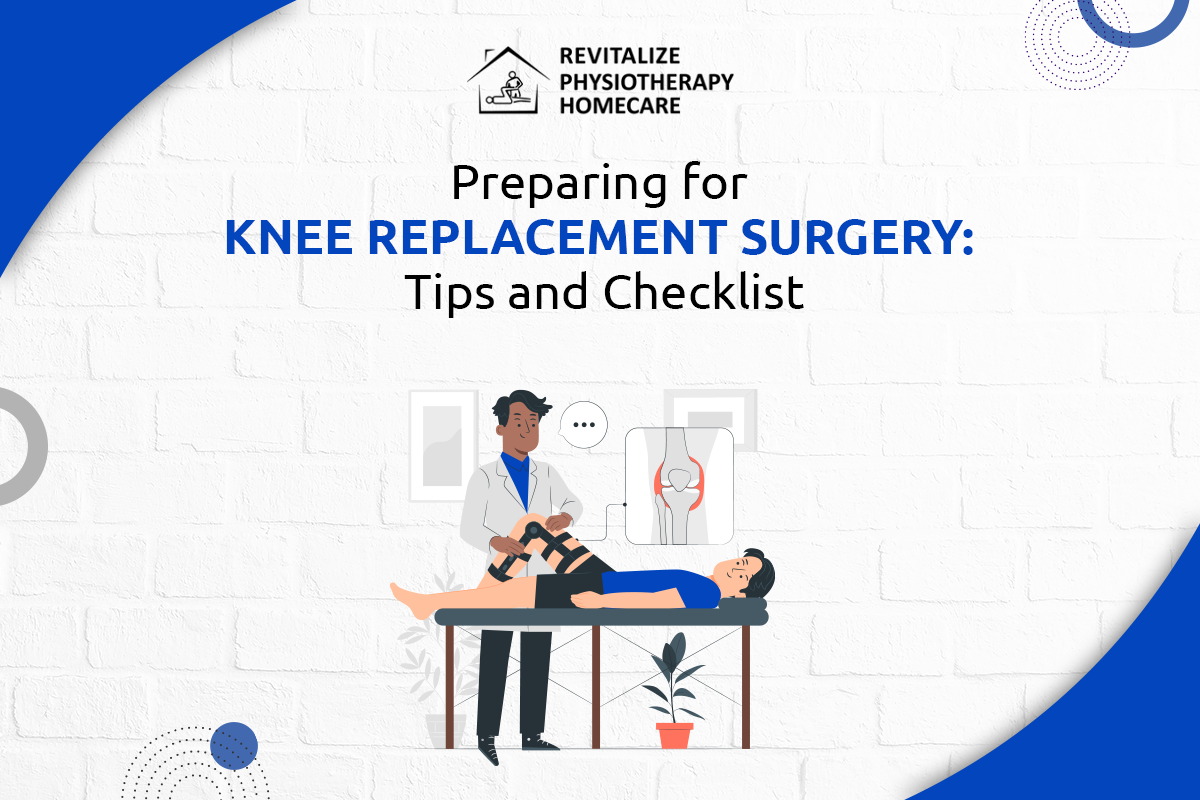Preparing for Knee Replacement Surgery: Tips and Checklist
If your partial or total knee replacement surgery has been scheduled and you want to have a checklist before getting into the surgery, then this guide is for you!
Preparing for knee replacement surgery can be a stressful time, but proper preparation can help alleviate anxiety and ensure a successful surgery and recovery.
Are you ready?
Are you aware of what you should do in order to prepare for a replacement knee?
Many of our patients want to know what they can do before getting into the surgery for a smooth and stress free process. We advise them to be prepared.
Preparing for knee replacement surgery can be as important as the recovery process. You can be successful if you make the right preparations.
The task list can feel daunting if you are going to be spending several days or nights in hospital. If so, don't worry.
Here is a full fledged checklist that helps you prepare for your stay at the hospital.
Checklist to tick before knee replacement surgery
Getting Ready:
Visit the website of hospital:
First, look up the website of your hospital. You will find all the information you need, including parking costs and locations. As well as details about amenities like cafes, pharmacies, visiting times, and internet access.
Your surgery team:
Know your surgery team before getting the procedure done by them. They will send you pre-surgery documentation before your surgery. This letter will include important information about the hospital, how to bring it and what to do with any prescribed medications.
Transport:
You won't likely be able to drive yourself home after the surgery. Let family or friends know as soon as possible about your surgery date. Keep in mind that check out times can change so they will need to be flexible. You may be eligible for Patient Transportation Services in certain situations. Find out more by speaking to the management of the hospital.
Timetable for visitors:
Think about the people you would like to see you at the hospital. It might be a good idea to arrange close family members for the immediate post-visit and guests for the afternoon. Check to see if there is a visiting policy at your hospital.
Packing for hospital:
Pack for the 24-hour cycle:
For the evening you will need nightwear, whereas for the day you will need casual clothes. You should consider packing loose-fitting clothing like a Tshirt or tracksuit bottoms for the day. They'll make you feel comfortable in bed, and they won't cause cramps during physio sessions.
Slippers make great hospital companions:
Slippers are easy to slip on and off, and don't require any special bending or tying. Make sure that they are well-gripped. Comfort is the main goal for shoes. Flat shoes with a comfortable insole are better than ones with a high heel.
Take your medication with you:
Make sure you take all your medications prescribed by the doctor along with the prescription. This will help the nurses understand your medical history without any hassle. These can be given to the nurse upon arrival. You can also make a list of them with dates and dosages.
Wash bag:
You'll likely want to use your own toiletries, rather than those provided by the hospital.
Here is a basic kit list: toothpaste, toothbrush, shampoo, sanitary wear and skincare products.
Packaged snacks:
Snacks can be helpful for those who are bed-bound or have special dietary requirements. This will help you feel less homesick. Since constipation is a common side effect of surgery substances, dried fruit like prunes can be a good choice.
Entertainment material:
Entertainment is what you will need to keep your mind busy in hospital. It's easy to take magazines, books, and puzzle books with you and leave them around. It might also be a good idea to have a tablet that has pre-downloaded movies and audio. However, security is a concern. Some hospitals advise against bringing valuables.
Stock up on supplies:
Stock up on items you will need during your recovery, such as ice packs, compression stockings, and non-slip socks. You may also want to consider purchasing a raised toilet seat and shower chair.
Eye care:
Pack your lenses, if necessary. However, if you are going to be asleep for a longer period of time, glasses might be more useful than contacts. You might consider bringing your own eye drops or lotions to help soothe the skin and eyes.
Other things to take care of:
Arrange for help:
It is important to have help during your recovery, especially in the first few weeks. Arrange for a friend or family member to stay with you or visit frequently.
Plan for physical therapy:
Physiotherapy is an essential component of the recovery process after Knee Replacement Treatment Brampton. A Brampton physiotherapist will work with you to restore strength, flexibility, and range of motion to your knee, and help you regain your independence and function.
You will likely need physiotherapy after your surgery. Make sure you have a plan for it beforehand!
Conclusion:
We hope this checklist helps you prepare you for Knee Replacement Surgery. This blog is an answer to many of your questions and concerns before you get into knee replacement surgery.
At Revitalize Physiotherapy and Homecare, we help you with all your health concerns. If you are looking for the best Knee Replacement Clinic Brampton, then do consider visiting our therapists once for consultation.




